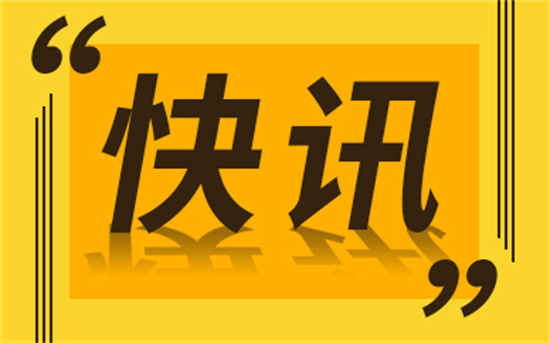本文目录一览:
 (资料图片仅供参考)
(资料图片仅供参考)
《谈读书》中的名言警句
《谈读书》中的名言警句推荐如下:
1、书是读不尽的,就读尽也是无用,许多书都没有一读的价值。
2、多读一本没有价值的书,便丧失可读一本有价值的书的时间和精力;所以须慎加选择。
3、学问不只是读书,而读书究竟是学问的一个重要途径。
4、书籍是过去人类的精神遗产的宝库,也可以说是人类文化学术前进轨迹上的记程碑。
5、我们就现阶段的文化学术求前进,必定根据过去人类已得的成就做出发点。
6、历史愈前进,人类的精神遗产愈丰富,书籍愈浩繁,而读书也就愈不易。
7、何一种学问的书籍现在都可装满一图书馆,其中真正绝对不可不读的基本著作往往不过数十部甚至于数部。
8、读书并不在多,最重要的是选得精,读得彻底。
9、世间许多人读书只为装点门面,如暴发户炫耀家私,以多为贵。这在治学方面是自欺欺人,在做人方面是趣味低劣。
10、少年为学者,每一书皆作数次读之。
谈读书原文及翻译
《谈读书》原文及翻译如下:
原文:敏而好学,不耻下问。知之为知之,不知为不知,是知也。默而识之,学而不厌,诲人不倦。余尝谓读书有三到,谓心到、眼到、口到。心不在此,则眼不看仔细。
翻译:天资聪明而又好学的人,不以向地位比自己低、学识比自己差的人请教为耻。知道就是知道,不知道就是不知道,这才是真正的智慧。默默地记住所学的知识,学习不觉得满足,教人不知道疲倦。我曾经说,读书讲究三到,即读书时要专心,要认真看,要诵读。心思不在书本上,那么眼睛就不会仔细看。
作者介绍
朱熹,字元晦,又字仲晦,号晦庵,晚称晦翁。祖籍徽州府婺源县,生于南剑州尤溪。中国南宋时期理学家、思想家、哲学家、教育家、诗人。著述甚多,有《四书章句集注》、《太极图说解》、《通书解说》等。
朱熹十九岁考中进士,曾任江西南康、福建漳州知府、浙东巡抚等职,做官清正有为,振举书院建设。官拜焕章阁侍制兼侍讲,为宋宁宗讲学。晚年遭遇庆元党禁,被列为伪学魁首,削官奉祠。庆元六年逝世,享年七十一岁。后被追赠为太师、徽国公,赐谥号文,故世称朱文公。
以上内容参考:百度百科—朱熹
谈读书原文 谈读书原文是怎样的
1、原文
说明:人教课文选择的是王佐良先生译文。
读书足以怡情,足以博彩,足以长才。其怡情也,最见于独处幽居之时;其傅彩也,最见于高谈阔论之中;其长才也,最见于处世判事之际。练达之士虽能分别处理细事或一一判别枝节,然纵观统筹、全局策划,则舍好学深思者莫属。读书费时过多易惰,文采藻饰太盛则矫,全凭条文断事乃学究故态。读书补天然之不足,经验又补读书之不足,盖天生才干犹如自然花草,读书然后知如何修剪移接;而书中所示,如不以经验范之,则又大而无当。有一技之长者鄙读书,无知者羡读书,唯明智之士用读书,然书并不以用处告人,用书之智不在书中,而在书外,全凭观察得之。读书时不可存心诘难作者,不可尽信书上所言,亦不可只为寻章摘句,而应推敲细思。书有可浅尝者,有可吞食者,少数则须咀嚼消化。换言之,有只须读其部分者,有只须大体涉猎者,少数则须全读,读时须全神贯注,孜孜不倦。书亦可请人代读,取其所作摘要,但只限题材较次或价值不高者,否则书经提炼犹如水经蒸馏、淡而无味矣。
读书使人充实,讨论使人机智,笔记使人准确。因此不常作笔记者须记忆特强,不常讨论者须天生聪颖,不常读书者须欺世有术,始能无知而显有知。读史使人明智,读诗使人灵秀,数学使人周密,科学使人深刻,伦理学使人庄重,逻辑修辞之学使人善辩:凡有所学,皆成格。人之才智但有滞碍,无不可读适当之书使之顺畅,一如身体百病,皆可借相宜之运动除之。滚球利睾肾,射箭利胸肺,慢步利肠胃,骑术利头脑,诸如此类。如智力不集中,可令读数学,盖演题须全神贯注,稍有分散即须重演;如不能辨异,可令读经院哲学,盖是辈皆吹毛求疵之人;如不善求同,不善以一物阐证另一物,可令读律师之案卷。如此头脑中凡有缺陷,皆有特药可医。
2、英语原文:
STUDIES serve for deligt, for ornament, and for ality. Teir cief use for deligt, is in privateness and retiring; for ornament, is in discourse; and for ality, is in te judgment, and disposition of business. For expert men can exe-cute, and peraps judge of particulars, one by one; but te general counsels, and te plots and marsalling of affairs, come best, from tose tat are learned. To spend too muc time in studies is slot; to use tem too muc for ornament, is affectation; to make judgment wolly by teir rules, is te umor of a scolar. Tey perfect nature, and are perfected by experience: for natural alities are like natural plants, tat need proyning, by study; and studies temselves, do give fort directions too muc at large, except tey be bounded in by experience. Crafty men contemn studies, simple men admire tem, and wise men use tem; for tey teac not teir own use; but tat is a wisdom witout tem, and above tem, won by observation. Read not to contradict and confute; nor to believe and take for granted; nor to find talk and discourse; but to weig and consider. Some books are to be tasted, oters to be swallowed, and some few to be cewed and digested; tat is, some books are to be read only in parts; oters to be read, but not curiously; and some few to be read wolly, and wit diligence and attention. Some books also may be read by deputy, and extracts made of tem boters; but tat would be only in te less important arguments, and te meaner sort of books, else distilled books are like common distilled waters, flasy tings.
Reading make a full man; conference a ready man; and writing an exact man. And terefore, if a man write little, e ad need ave a great memory; if e confer little, e ad need ave a psent wit: and if e read little, e ad need ave muc cunning, to seem to know, tat e dot not. Histories make men wise; poets witty; te matematics subtitle; natural pilosopy deep; moral grave; logic and retoric able to contend. Abeunt studia in mores. Nay, tere is no stand or impediment in te wit, but may be wrougt out by fit studies; like as diseases of te body, may ave appropriate exercises. Bowling is good for te stone and reins; sooting for te lungs and breast; gentle walking for te stomac; riding for te ead; and te like. So if a mans wit be wandering, let im study te matematics; for in demonstrations, if is wit be called away never so little, e must begin again. If is wit be not apt to distinguis or find differences, let im study te Scoolmen; for tey are cymini sectors. If e be not apt to beat over matters, and to call up one ting to prove and illustrate anoter, let im study te lawyers cases. So every defect of te mind, may ave a special receipt.
谈读书的主要内容是什么?
第一段段意:总说读书所带来的话题。
第二段段意:通过我读《三国》、《说岳》和《红楼》的经历来说明读书的好处,以及读好书的重要。
第三段段意:作者体会到读书是她生命中最大的快乐,并学会处事做人的道理。
第四段段意:用自己的亲身体验总结了文章的主旨,“读书好,多读书,读好书”。
扩展资料
作者冰心在这篇文章中主要向中学生讲述有关读书的问题。通常在这一类的文章中我们看到的多是基于理论的理说教。如:读书会给我们带来的各方面的好处等等,让低龄读者读来索然无味,自然也就无法激发学生对于读书的兴趣。而冰心奶奶这篇文章却另辟蹊径。
首先文章开篇一句“一谈到读书,我的话就多了”让人听来很亲切,好像一位慈祥的奶奶在与自己谈话,一下子抓住了学生的心。在整篇文章中,完全是对自己亲身经历的讲述,让学生在读的过程中跟随冰心奶奶成长,直到文章结尾得出结论:“读书好,多读书,读好书”。娓娓道来之语,如心底之泉水,缓缓流进了学生的心中,让读者终身难忘。
以上就是小编对谈读书的相关信息分享,希望能对大家有所帮助。
关键词:




